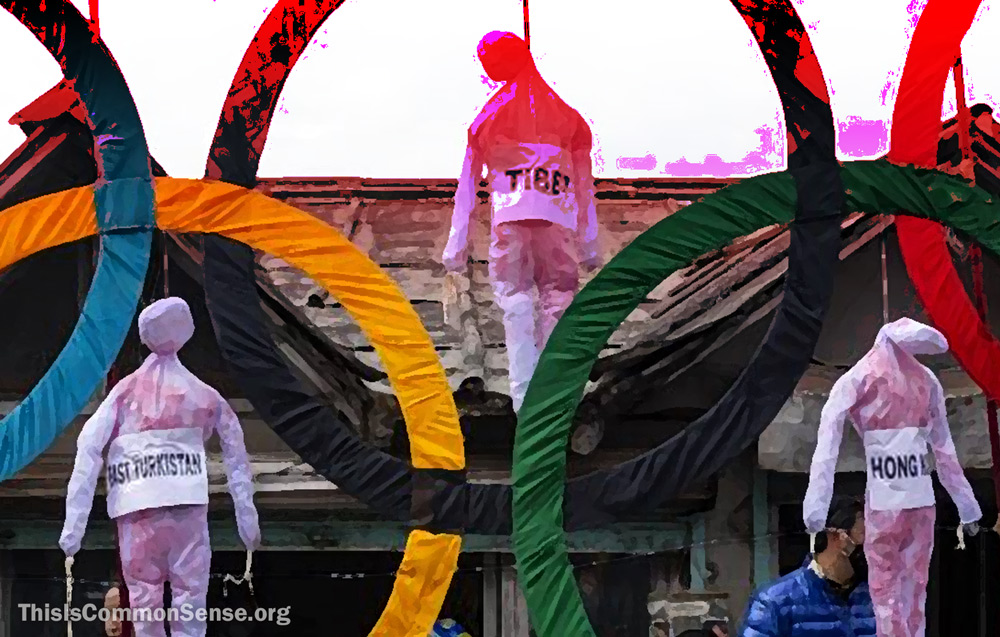The Biden administration sure knows how to look feckless when it comes to standing up to China.
The administration has decided that the best way to protest Chinazi aggression against Hong Kong democracy and freedom — and against the lives and freedom of millions of Uyghurs — is to announce a “diplomatic” boycott of the Beijing-sponsored Olympic games, scheduled to be held in February.
U.S. participation would continue as before: athletes will perform, sports fans will attend, and corporations will make money.
What will be missing?
Government officials.
Viewers around the world won’t notice any difference, of course. They don’t tune in to watch muckety-mucks photo-bombing the medal ceremonies.
Even Jimmy Carter, loath to be outdone in the fecklessness department, knew that the way for the U.S. to boycott the 1980 Moscow-hosted Olympics in protest of the Soviet invasion of Afghanistan was to actually boycott the Olympics.
Columnist Cathal Kelly notes that the “diplomatic” boycott is “worse than meaningless.”
The administration’s language games amount to nothing less than “a more impressive sounding way of saying you are eliminating Olympic junkets,” Kelly writes. “Now all the sad, second-rate pols from North Dakota and Maine won’t get flown private to Beijing so they can take a bunch of ego shots with Auston Matthews.”
With the Winter Olympics mere months away, we can’t expect the U.S. government to improve its policy in time.
But that still leaves many other parties who can act, including governments of other countries, U.S. sports teams, and individual U.S. athletes.
Withdraw, and say why.
This is Common Sense. I’m Paul Jacob.
—
See all recent commentary
(simplified and organized)






